
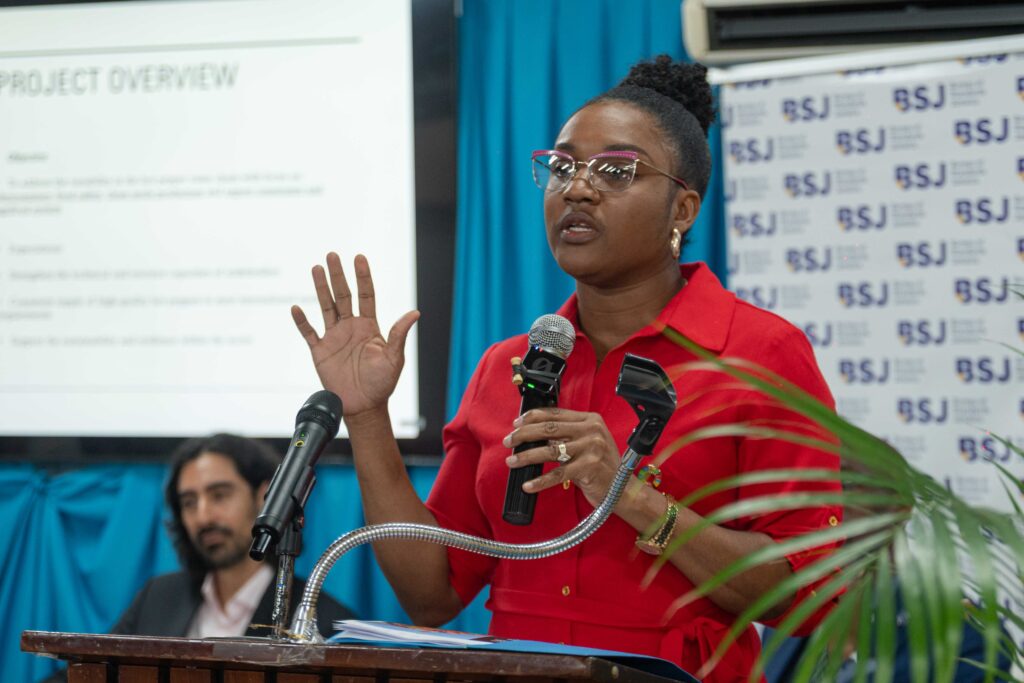
Tafara Smith, Focal Point for the Bureau of Standards Jamaica, outlined that the project of making Jamaica’s hot pepper competitive was implemented with the main aim of improving the phytosanitary quality of peppers locally.
Smith said that given the reports of the Jamaican peppers being exported, especially the raw pepper products, the project was written with the mandate to reduce those phytosanitary inceptions due to poor phytosanitary conditions or improve the quality of the pepper and improve exports, as well as develop the capacity of local farmers.
“The aim is to address variability in the hot pepper value chain with a focus on phytosanitary food safety, clean sea production, and export constraints and focusing on the food agro-system,” she said.
This project also allowed several farmers to receive training to improve the output and quality of their projects. “Each component of the project was written with an aspect of capacity building built into it because we do believe that while we can help you now, strengthening and improving the capabilities of our farmers will lead to sustainable agricultural development, and so that was a main thing for us.
“With the success of this project, the expectation is that we will strengthen the technical and resource capacity of our stakeholders. There will be a consistent supply of high-quality pepper for the export market and local, as well as the support of sustainability and resilience within the hot pepper sector,” Smith continued.

The project targeted at least five parishes to include St Ann, St Mary, St Elizabeth, Clarendon, and St Catherine and is aimed at farmers, processors, nursery operators, seed producers, agro-processors, and exporters as input suppliers for those processed products.
While speaking at the Handing Over Ceremony where farmers received magnifying glasses and other equipments to work on their farms, Smith noted that the Ministry of Agriculture, Fisheries and Mining, their departments and agencies, and other regional entities partnered with the Bureau of Standard to champion this project.
“We had over 9,378 farmers registered; we had 51 exporters of fresh pepper, as well as 55 hot pepper processors and 34 nursery operators. Overall project status at this time: we are proud to say that we are at 91%, project completion stage. There are a few things that are still outstanding that we’re hoping to close off going forward,” Smith added.

Changes in the scope of the project
Smith stated that changes were implemented in the project for greater efficiency and coordination. “There were some changes to the project, including a change in activity 1 as it relates to the database. We saw where we had originally planned to establish a database for clean seed. However, the scope was broadened to dedicate this database to a different area in the ministry, as well as changing the climate resilience plan for activity 3.3 to support the ministry’s direction. They would have already started implementation of activities, and so it allowed us to change focus and to redirect our resources to other areas. Also, there’s the inclusion of sea production items,” she said.
She also highlighted that the schedule of the project is still on track, though the Bureau of Standards requested an extension of the project due to the effects of Hurricane Beryl on the farmers. “At that point, we understood that you had to recover, and so we saw where there was a delay in response and engagement, and so we thought it was necessary to allow you that time to recuperate and to get a contract and then reengage with you.
“So the project end date is now changed to July 31, 2025, and so we will continue to engage with you. As it relates to our budget, the amount that was sponsored to us, in was US $1,065,393 plus interest, and the committed amount and actuals were $918,445. That’s 86 per cent of this figure, leaving us with a balance of US $146,948, so you see we still have some funds in the project that we will be using to continue to execute and to support you,” she added.
Risks experienced in the project execution phase
Due to the impact of natural disasters, the project faced tremendous delays in terms of sourcing, purchasing, receiving and inspecting goods and services. “Some more risks that we have experienced during the project execution phase include the impact of natural disasters and delays in the procurement of goods. We would have all as well felt some effect of the changes associated with the government procurement process. And so definitely, we know that would have impacted the project as well, with conflicting priorities and delayed responses from our stakeholders.”
However, despite these challenges, Smith stated that after the effective execution of this project, it is expected that the Jamaican hot pepper will impact the agricultural food systems, making them safer, more resilient, more efficient, and more productive.
“The indicators that we’ve been using to monitor ourselves are the increase in the volume of hot peppers that we are able to explore annually. We have a baseline of 18,847, and we are hoping to increase it by 10 per cent to 20,732 tonnes annually. Also, to have a reduction in the cases or occurrences of pest prevalence, which is the cause of those inceptions when we export our product.
“We’re hoping to reduce this by 25 per cent from a baseline of three to six per cent, moving to two to four per cent. Successful execution of this project will be to strengthen the government of Jamaica’s international competitiveness in the hot pepper industry by improving the institutional capacity and supporting farmers producing consistent high-quality peppers and improving market access,” Smith added.
This project is funded by the Standards and Trade Development Facility and is being implemented by the Food and Agriculture Organization of the United Nations (FAO) in close collaboration with the Bureau of Standards, Jamaica and the Ministry of Agriculture, Fisheries and Mining.

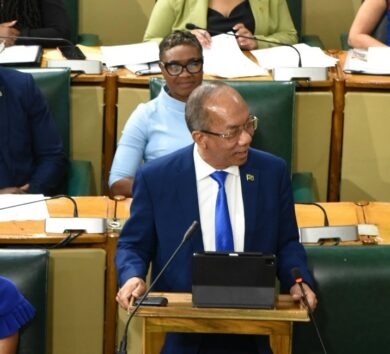
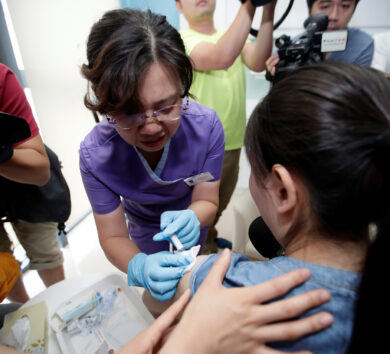

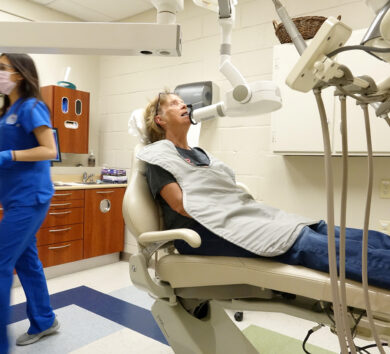
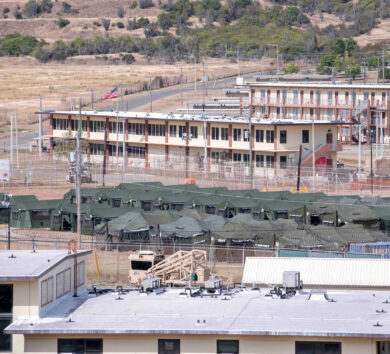
Comments